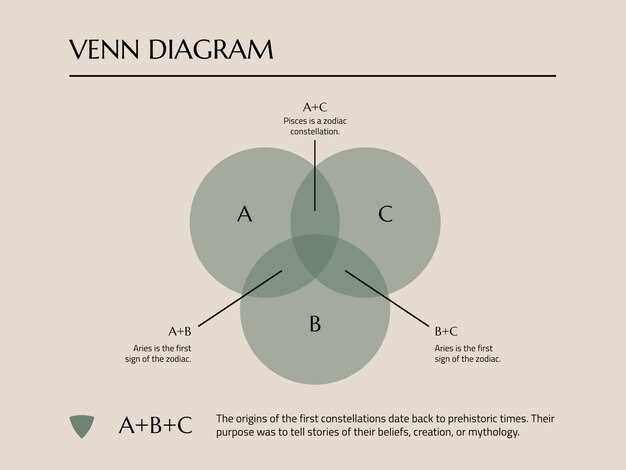
Looking for the best medication for high blood pressure? Let’s compare Valsartan and Losartan to help you make an informed decision.
Valsartan: Known for its effectiveness in treating hypertension, Valsartan works by relaxing blood vessels to lower blood pressure.
Losartan: Another popular choice, Losartan also helps lower blood pressure by blocking certain chemicals that constrict blood vessels.
Both Valsartan and Losartan are effective options, but it’s essential to consult with your healthcare provider to determine the best choice for your individual needs.
Benefits of Valsartan and Losartan
Valsartan:
Valsartan is an angiotensin II receptor blocker (ARB) that helps to relax blood vessels and lower blood pressure. It is commonly used to treat high blood pressure, heart failure, and improve survival after a heart attack.
Some of the benefits of valsartan include:
- Effective in lowering blood pressure
- Reduces the risk of heart-related complications
- Improves overall heart health
- Can be used alone or in combination with other medications
Losartan:
Losartan is also an angiotensin II receptor blocker that works similarly to valsartan in relaxing blood vessels and lowering blood pressure. It is commonly prescribed to treat hypertension, diabetic nephropathy, and to protect the kidneys from damage in certain people with type 2 diabetes.
Some of the benefits of losartan include:
- Effective in controlling high blood pressure
- Helps to protect the kidneys in diabetic patients
- May reduce the risk of stroke in certain individuals
- Can be a cost-effective treatment option
Benefits
There are several benefits of using valsartan as a treatment for hypertension and heart failure. Some of the key advantages include:
1. Blood Pressure Control:

Valsartan helps to lower high blood pressure and maintain it at a healthy level, reducing the risk of heart attacks, strokes, and other cardiovascular complications.
2. Heart Failure Management:
For patients with heart failure, valsartan can improve heart function and reduce symptoms such as shortness of breath, fatigue, and swelling in the legs.
3. Kidney Protection:
Valsartan has been shown to be effective in protecting the kidneys in patients with diabetes or other conditions that can lead to kidney damage.
4. Stroke Prevention:
By controlling blood pressure and reducing the risk of blood clots, valsartan can help prevent strokes in patients at risk.
| Key Benefits of Valsartan: |
|---|
| Blood pressure control |
| Heart failure management |
| Kidney protection |
| Stroke prevention |
Advantages of valsartan

When it comes to the advantages of valsartan, there are several key points to consider:
| 1. Efficacy: | Valsartan is effective in managing high blood pressure, reducing the risk of heart attack and stroke. |
| 2. Safety: | It is generally well-tolerated with a low incidence of adverse effects. |
| 3. Versatility: | Valsartan can be used alone or in combination with other medications to achieve optimal blood pressure control. |
| 4. Long-term benefits: | Studies have shown that valsartan provides long-term benefits in managing hypertension and improving cardiovascular health. |
| 5. Renal protection: | Valsartan has been shown to have a protective effect on the kidneys, making it a beneficial choice for patients with underlying kidney disease. |
Advantages of losartan
Losartan is a medication that is commonly prescribed for the treatment of high blood pressure and heart failure. It belongs to a class of drugs known as angiotensin II receptor blockers (ARBs), which work by relaxing blood vessels and lowering blood pressure.
One of the main advantages of losartan is its tolerability. In general, losartan is well-tolerated by most patients, with few serious side effects reported. This makes it a popular choice for individuals who may have experienced adverse reactions to other blood pressure medications.
| Advantages of losartan: |
|---|
| 1. Minimal side effects compared to other blood pressure medications. |
| 2. Effective in lowering blood pressure and reducing the risk of heart-related complications. |
| 3. Available as a generic medication, making it more affordable for patients. |
| 4. Can be used alone or in combination with other medications for better blood pressure control. |
Overall, losartan is a safe and effective option for managing high blood pressure and improving cardiovascular health. Consult with your healthcare provider to see if losartan is the right choice for you.
Side Effects
When taking valsartan, some common side effects may include:
| Headache | Diarrhea |
| Dizziness | Back pain |
| Fatigue | Low blood pressure |
These side effects are usually mild and may improve as your body adjusts to the medication. If any of these side effects persist or worsen, it is important to contact your healthcare provider.
Common side effects of valsartan
When taking valsartan, some common side effects may occur. It is important to be aware of these potential side effects and discuss any concerns with your healthcare provider.
1. Dizziness:
Some individuals may experience dizziness while taking valsartan. This side effect can be more common when starting the medication or changing the dosage.
2. Fatigue:
Feeling tired or fatigued is another common side effect of valsartan. It is essential to monitor your energy levels and rest as needed while taking this medication.
Common side effects of losartan
Losartan, like all medications, may cause side effects in some individuals. While not everyone will experience these side effects, it is important to be aware of them. Common side effects of losartan may include:
- Dizziness: Some individuals may experience dizziness when taking losartan.
- Fatigue: Feeling tired or fatigued is a common side effect of losartan.
- Cold-like symptoms: Some individuals may experience symptoms similar to a cold, such as a runny or stuffy nose.
- Back pain: Back pain is a reported side effect of losartan.
- Low blood pressure: Losartan may cause a decrease in blood pressure, which can lead to symptoms such as lightheadedness.
- Increased potassium levels: In some cases, losartan can cause an increase in potassium levels in the blood.
If you experience any of these side effects or any other unusual symptoms while taking losartan, it is important to speak to your doctor. They can provide guidance on how to manage these side effects or may suggest alternative treatment options.
Effectiveness
When it comes to effectiveness, both Valsartan and Losartan are known to be effective in treating high blood pressure and heart failure. However, studies have shown that Valsartan may be slightly more effective in lowering blood pressure compared to Losartan.
Furthermore, Valsartan has also been shown to be effective in reducing the risk of cardiovascular events such as heart attacks and strokes in patients with heart failure or a history of heart attacks. Losartan, on the other hand, may be more effective in certain populations or individuals with specific conditions.
